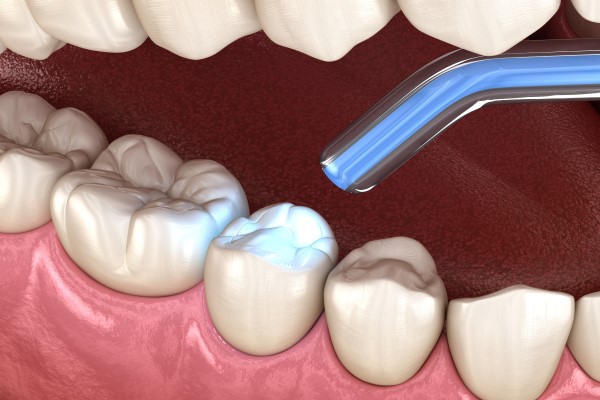How Safe Is Mercury Free Dentistry?

Curious about mercury free dentistry? Read on to learn more about the use of mercury free dental restoration options. The discovery of amalgam fillings more than a century ago transformed the treatment of dental decay and cavities. Dental patients were in danger of losing their teeth before fillings were introduced. Amalgam fillings made of mercury and a combination of tin, copper, silver, or zinc were developed to stop the spread of bacteria in the tooth. While this method saved numerous people's teeth, mercury free dentistry remains the safer option for tooth restoration.
The safety of mercury free dentistry
Mercury toxicity has been a contentious matter of debate both inside and outside of the professional healthcare community throughout the years. Many health professionals believe that mercury from amalgam fillings does not constitute a severe health risk to patients. Some studies, however, refute this viewpoint.
Amalgam fillings emit what is known as "mercury vapor outgassing," according to the World Health Organization (WHO). When this condition happens, the person with amalgam fillings can absorb up to 80% of the harmful gas. Furthermore, handling mercury amalgam fillings can be potentially unsafe to healthcare personnel as well as the environment.
Because of these dangers, the WHO has recommended that amalgam fillings be phased out in favor of other restorative materials. Mercury free dentistry refers to the procedure of removing amalgam fillings. This treatment is a top priority at many dental offices for a variety of reasons:
Priority is given to health and safety
The effects of mercury vapor outgassing on the brain and kidneys have been linked. It has also been discovered to be riskier for children under the age of six and pregnant women. Research has also associated mercury toxicity with some neurological diseases.
Amalgam fillings are becoming outdated
Aside from health considerations, the procedure is just outdated. In dentistry, professionals are constantly striving to improve diagnostic and treatment techniques to provide the best possible care. This necessitates a rethinking of cavity treatment.
Composite fillings outperform traditional fillings
Composite fillings are an excellent dental option. Composite fillings are far safer than amalgam fillings, which contain up to 50% mercury. They are constructed of powdered glass and acrylic resin rather than mercury. In addition, patients benefit from a filling that may be custom colored to fit in with the rest of their teeth.
Benefits of composite fillings
Patients must understand that choosing mercury free dentistry comes with a slew of advantages, including high-quality composite fillings. Some of the benefits include:
- Composite fillings are made up of many synthetic resins that are free of mercury and present no known health hazards
- White composite fillings are appealing because they mimic the appearance and feel of the natural teeth
- Composite fillings are robust and durable
Amalgam removal requires specialized training
Mercury-safe dentists are trained to remove and dispose of amalgam fillings safely, without exposing the dentist or the patient to mercury. This ensures the removal of amalgam fillings in a safe manner.
In conclusion
To learn more about mercury free dentistry, contact our dental office to book an appointment.
Request an appointment here: https://www.thanasasdds.com or call Thanasas Family Dental Care at (248) 260-2878 for an appointment in our Troy office.
Check out what others are saying about our dental services on Yelp: Composite Fillings in Troy, MI.
Recent Posts
If you are self-conscious about your smile because of a damaged or chipped tooth, you should know that a dentist can use dental fillings to quickly correct these minor flaws and restore your smile's appearance.Dental filling application is an in-office technique in which dentists use a tooth-colored resin substance to fix minor flaws in the…
A dental filling is important in achieving good dental health and a painless smile. This dental restoration can seal the tooth and protect it from further decay. Knowing when to get fillings can help you achieve your smile goals earlier. Here are the signs your tooth may need a dental filling right away.Pain often develops…
When individuals experience cavities and other problems that affect their teeth, dentists use a dental filling to repair and restore them. This helps preserve damaged teeth and prevents their loss. Dental fillings are the most common type of dental work: according to the Centers for Disease Control and Prevention, over 90% of Americans have had…
A dental filling is most often used to treat cavities. If a patient has a cavity, the dentist removes decay from the tooth and fills the area. Likewise, the filling material can repair cracked and broken teeth. There are several materials available for dental fillings. Materials include porcelain, gold, silver amalgam, and composite resin.You may…


